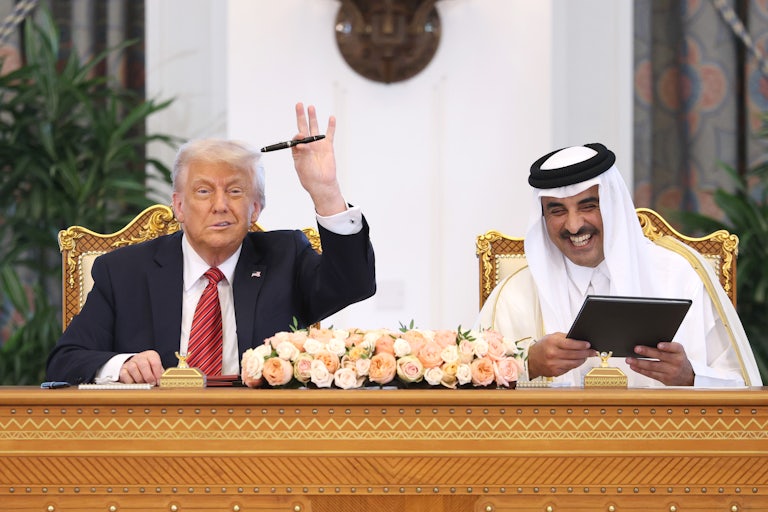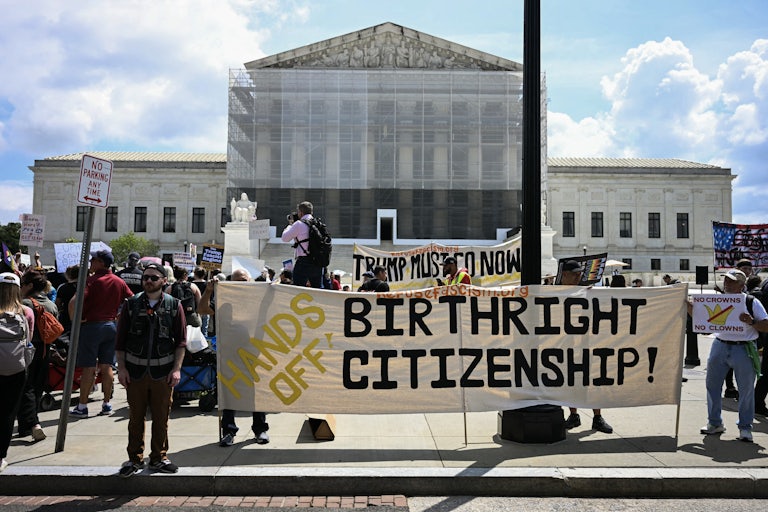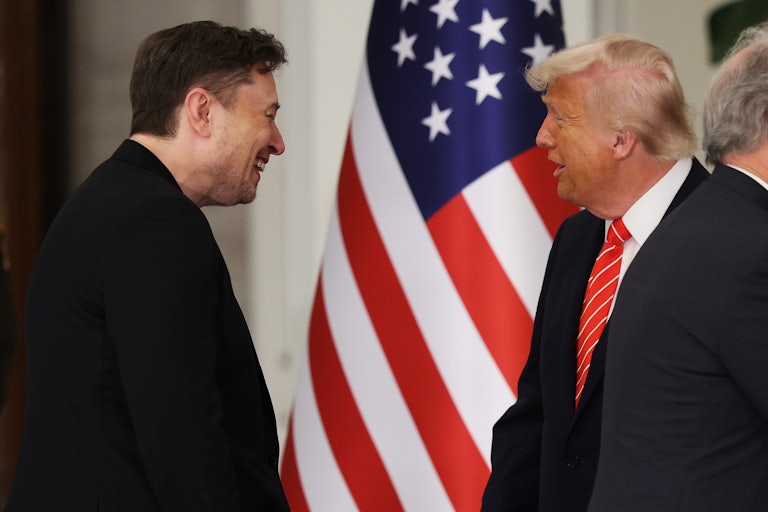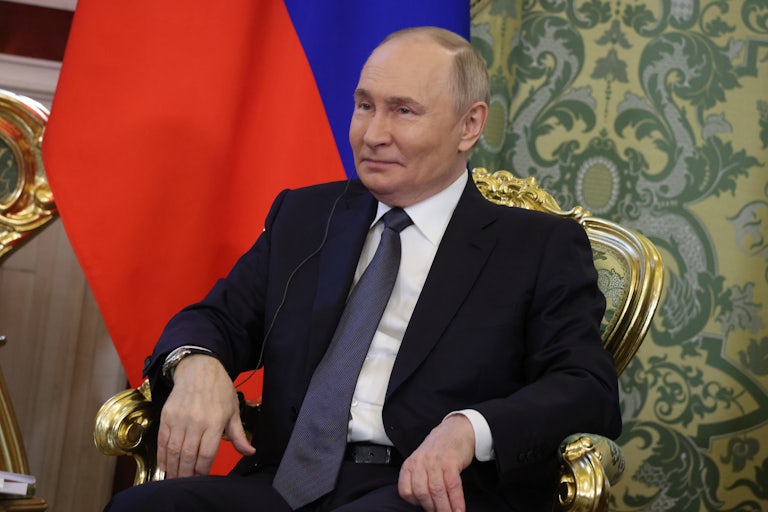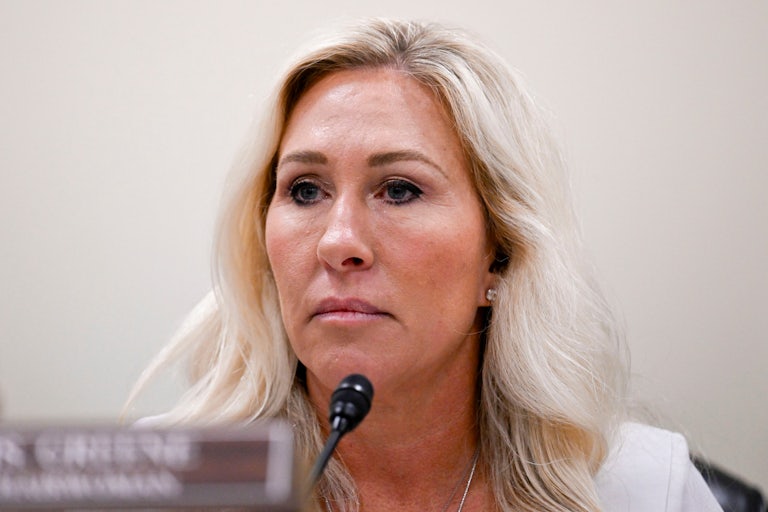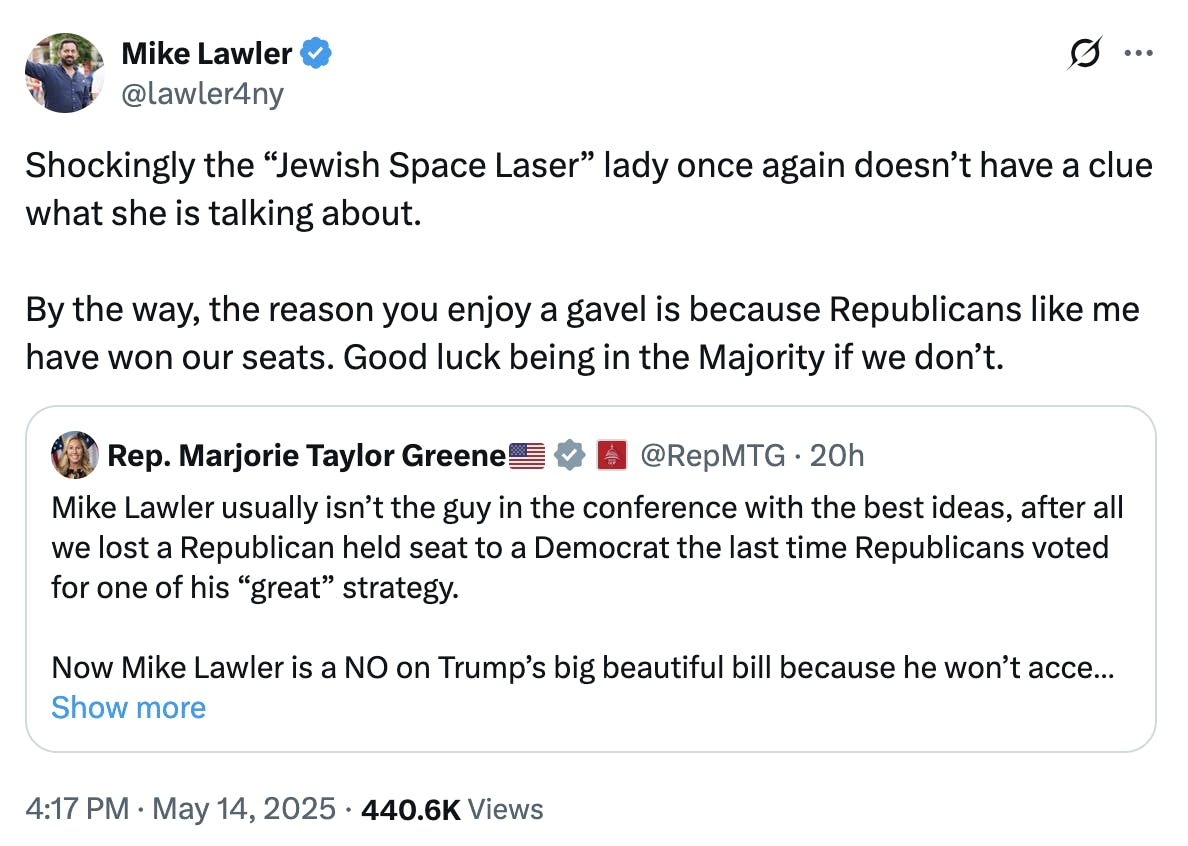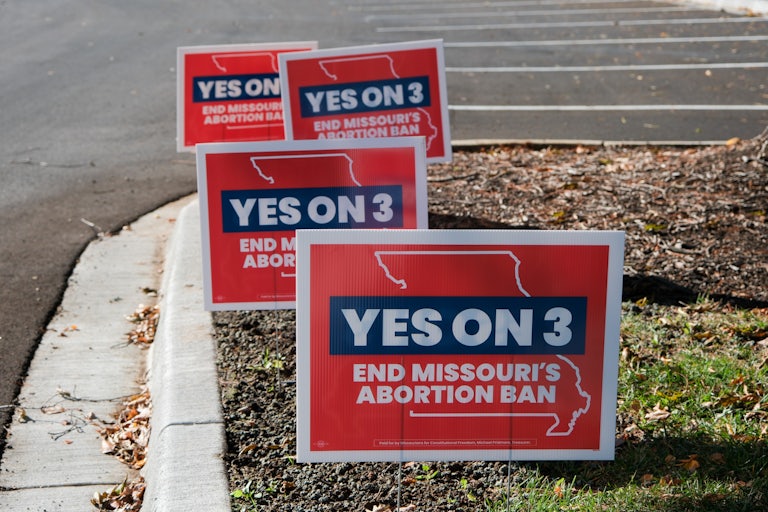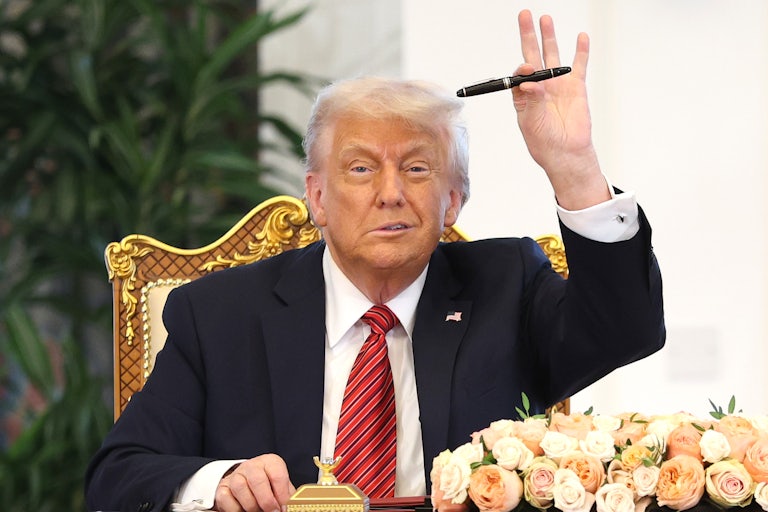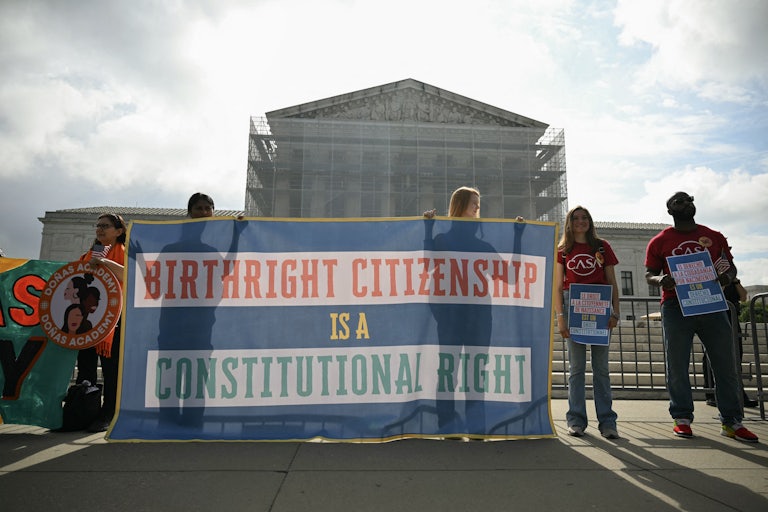Trump’s Tariffs Will Cost Consumers, Walmart CFO Grimly Warns
Walmart is placing the blame for rising costs squarely on Donald Trump’s shoulders.
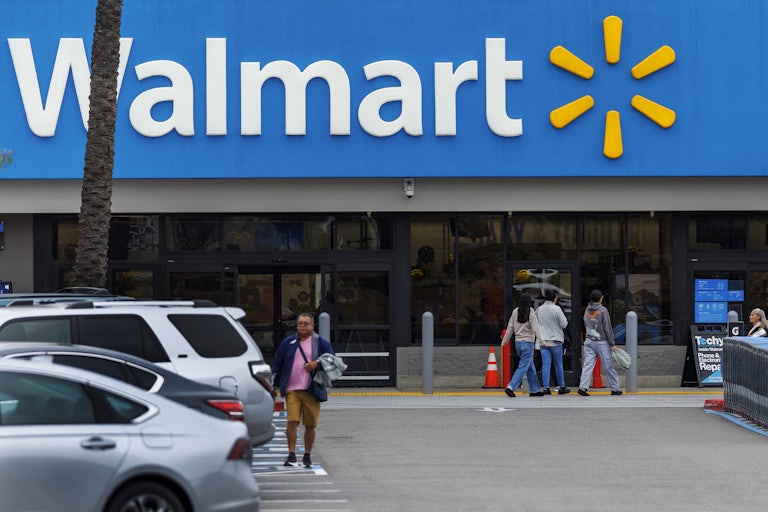
Walmart’s Chief Financial Officer John David Rainey warned Thursday that shoppers could begin to feel price increases on consumer goods as soon as next month as a result of Donald Trump’s tariffs.
“We’re wired for ‘Everyday Low Prices,’ but the magnitude of these increases is more than any retailer can absorb,” Rainey told CNBC. “It’s more than any supplier can absorb. And so I’m concerned that the consumer is going to start seeing higher prices. You’ll begin to see that, likely towards the tail end of this month, and then certainly much more in June.”
The CFO explained that Walmart imports a third of its merchandise and food from other countries, with China being the largest supplier, followed by Mexico, Canada, India, and Vietnam. The retail giant is therefore vulnerable to supply chain disruptions sparked by Trump’s sweeping reciprocal tariff policy.
Rainey said that it wouldn’t be easy to adapt to changes in demand sparked by fluctuations in pricing.
“We’ve not seen a period where you’ve had prices go up this high, this quickly. We’re well equipped and experienced in dealing with elasticities or price increases that are going up 2 or 3 percent, but not 30 percent,” Rainey said.
He promised the company would “keep prices as low as we can, for as long as we can.”
Rainey also told CNBC that while Walmart had yet to cancel any orders as a result of the president’s tariffs, they had reduced some on occasion.
CNBC reported that Walmart is not giving guidance for second-quarter operating income due to the wide range that it would have to give, because it uses a cost-to-sales price ratio that would be nearly impossible to predict. The company still held its annual operating income predictions. Rainey did warn that there could be “sharper swings in margins and earnings” as a result of quickly changing prices.
“Keep in mind, just a week ago we were at 145 percent tariffs. Now, we’re very appreciative of the progress the administration has made to get them down to this level, but I would say it’s still too high for consumers. We’d like to see them come down more,” he added.
Treasury Secretary Scott Bessent announced Monday that U.S. tariffs on China would temporarily decrease from 145 percent to 30 percent for the next 90 days. On the flip side, China said it would lower its import tariff on American products to 10 percent from 125 percent. While the announcement caused investors to breathe a sigh of relief, market experts were wary that the agreement was not an actual deal—and the agreed rate was far lower than the ones Trump had been spouting for weeks.
